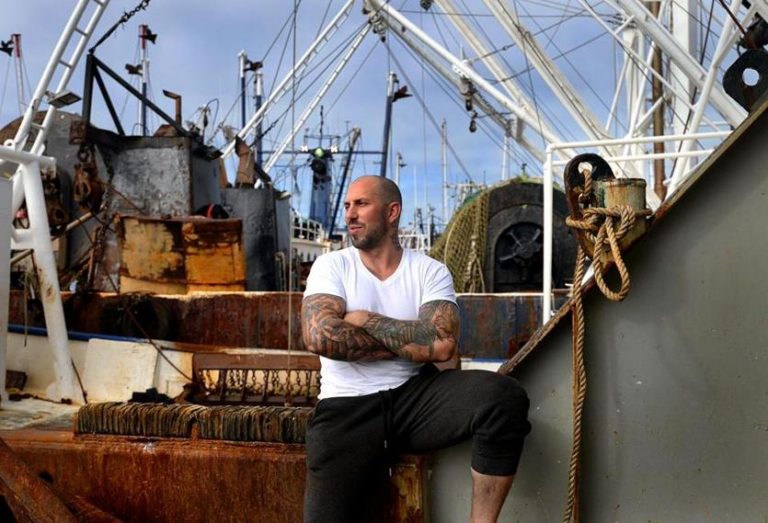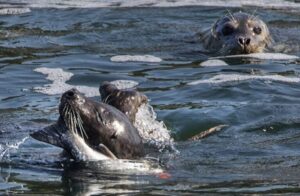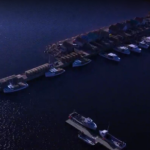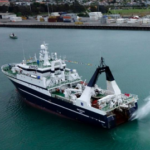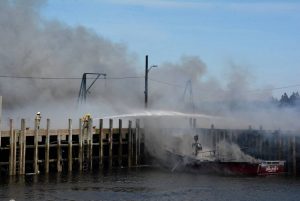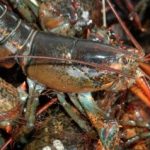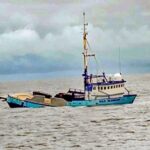Division of Marine Fisheries Extends Trap Fishing Gear Closure in Cape Cod Bay
As a result of the ongoing presence of endangered right whales feeding in Cape Cod Bay, the Division of Marine Fisheries (DMF) today announced that most of Cape Cod Bay will remain closed to the setting of recreational and commercial traps and pots for an additional week, through May 7, 2017.
Right whales are common in Cape Cod Bay during late winter and early spring, especially during the months of March and April, and usually depart before May 1, when the three month (February – April) trap
closure affecting this area was scheduled to be lifted. However, over the past month an unprecedented number of whales have been observed, with mid-April counts demonstrating a presence of more than 200 whales. While the most recent survey suggests some whales may have departed the Bay, an estimated 100 to 200 individuals remain present. This late seasonal presence of whales corresponds with extraordinarily high densities of plankton (Calanus copepods), the preferred food of right whales.
The area affected by the closure is depicted in the map below and its northern border is bound by the following points:
|
Point |
Latitude |
Longitude |
|
A |
41°35’44.02” |
70°35’44.02” |
|
B |
42°0’20.15” |
70°35’56.79” |
|
C |
42°6’56.4” |
70°16’29.14” |
|
D |
42°4’53.83” |
70°10’26.96” |
The Center for Coastal Studies is completing its 21st annual survey under contract to MarineFisheries funded by the National Oceanic and Atmospheric Administration and the Massachusetts Environmental Trust. Based on survey’s historical patterns of whale distribution and abundance in the bay, the whales are expected to depart in early May. Regular surveillance flights by the Center will allow MarineFisheries to monitor the situation. If whales depart early or change their distribution, the closure will be rescinded or modified to ease the burden on commercial and recreational lobstermen.
Because these right whales are intensely feeding near the surface they can be somewhat oblivious to their surroundings and are highly vulnerable to entanglements in vertical buoy lines as well as vessel strikes. All mariners should be cautious and avoid transiting the area in excess of 10 knots. Additionally, it is unlawful to approach within 500 yards of a right whale or to harass or harm any right whale. If you observe a right whale entangled in fishing gear while on the water, report it immediately to the Center for Coastal Studies (800-900-3622), the state Office of Environmental Law Enforcement (800-632-8075) or the federal Entanglement Hot Line: (866-755-6622).
For more information about the closure, contact Division of Marine Fisheries Deputy Director Dan McKiernan at (617) 626-1536 or [email protected], or Erin Burke at (508) 990-2860 extension 142. Individuals are also encouraged to visit the Division of Marine Fisheries’ website.


































